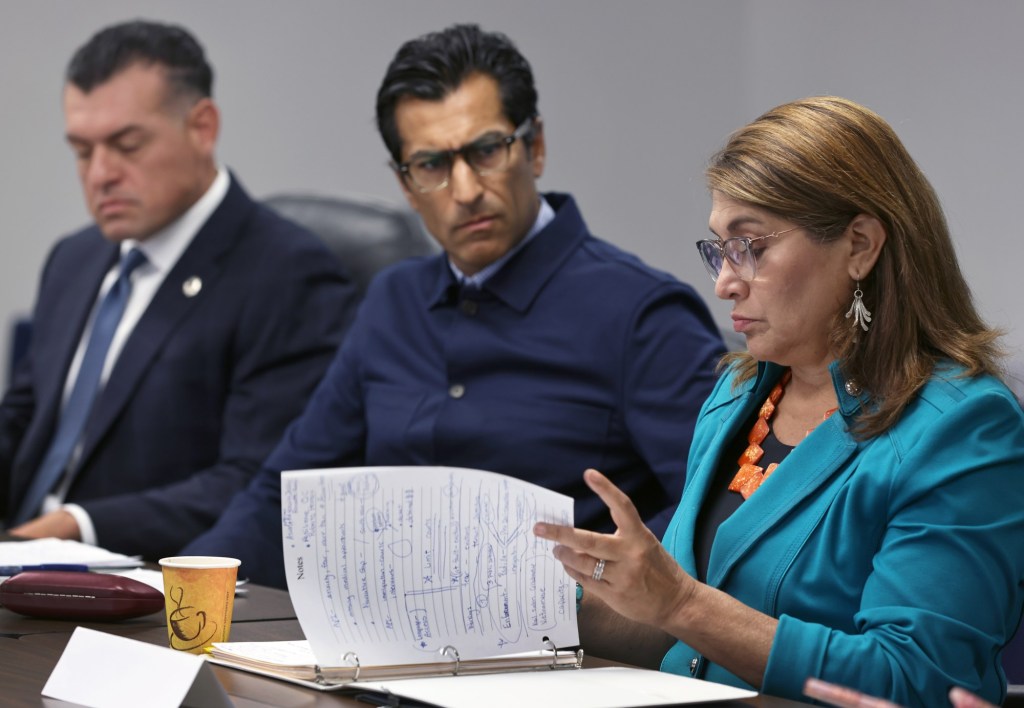
Gov. Gavin Newsom and his fellow Democrats in the Legislature incessantly denounce President Donald Trump for trampling on civil rights in his lust for power.
Their current drive to sanction a gerrymander of California’s 52 congressional districts to add five Democratic seats is couched in assertions that it would help blunt Trump’s authoritarian tendencies. One pro-Proposition 50 ad describes Trump’s campaign for pro-Republican gerrymanders as a “blitzkrieg,” using language associated with Hitler and World War II Germany.
However, as Newsom, et al, posture as saviors of democracy, they haven’t hesitated to infringe on constitutional rights themselves.
For instance, California’s restrictive laws governing gun ownership have drawn adverse decisions from federal judges in recent months who have applied U.S. Supreme Court interpretations of the constitutional right to bear arms. In the past, Newsom denounced judges who ruled against them as toadies of the firearms industry.
California’s willingness to abridge constitutional rights extends beyond guns, however. Newsom and legislators also will challenge constitutionally protected free speech if it comes from those on the other side of the political divide.
Last year, in response to some political parodies that used images created by artificial intelligence, including one that pilloried Vice President Kamala Harris, the Legislature passed and Newsom signed two measures to outlaw such tomfoolery.
One, Assembly Bill 2655, dubbed the Defending Democracy from Deepfake Deception Act, ordered social media platforms to block or label fictional AI-generated material. Babylon Bee, which generates right-wing satire, and X, Elon Musk’s social media site, filed suit to overturn the law. A month ago, federal Judge John Mendez struck it down for violating the federal Communications Decency Act, which provides immunity to platforms for posting by third parties.
Mendez bypassed the plaintiffs’ contention that the measure unconstitutionally abridged free speech rights. However, he indicated that the second measure, Assembly Bill 2839, did violate the Constitution. Last week, Mendez took that a step further, declaring that by prohibiting deepfake material within 120 days of an election, AB 2839 restricted free speech.
“To be sure, deepfakes and artificially manipulated media arguably pose significant risks to electoral integrity, but the challenges launched by digital content on a global scale cannot be quashed through censorship or legislative fiat,” Mendez wrote, adding, “Just as the government may not dictate the canon of comedy, California cannot preemptively sterilize political content.”
The judge also noted that the state Constitution protects speech so “it follows that AB 2839 violates California’s Constitution for all of the same reasons that it violates the First Amendment of the United States Constitution.”
Despite having the two bills shot down by court, California’s politicians seem bent on once again trying to influence what Californians can be told via social media and the Internet.
Senate Bill 771, which is awaiting action during the final days of the 2025 session, would increase civil penalties that can be imposed on media platforms for content that violates laws barring threats or intimidation.
It stems from the often bitter debate over Israel’s invasion of Gaza in the wake of a deadly Hamas attack on Israel two years ago. The bill is mainly sponsored by pro-Israel groups who say it’s needed to block antisemitic threats. However, groups such as the Council on American-Islamic Relations argue that opening up potential financial penalties would encourage platforms to reduce or eliminate criticism of the war.
An Assembly Judiciary Committee analysis suggested that if SB 771 is enacted it might run afoul of the federal law protecting media platforms from liability for third-party content — the same law cited by Mendez in his decision on the state deepfake law.
Dan Walters is a CalMatters columnist.



